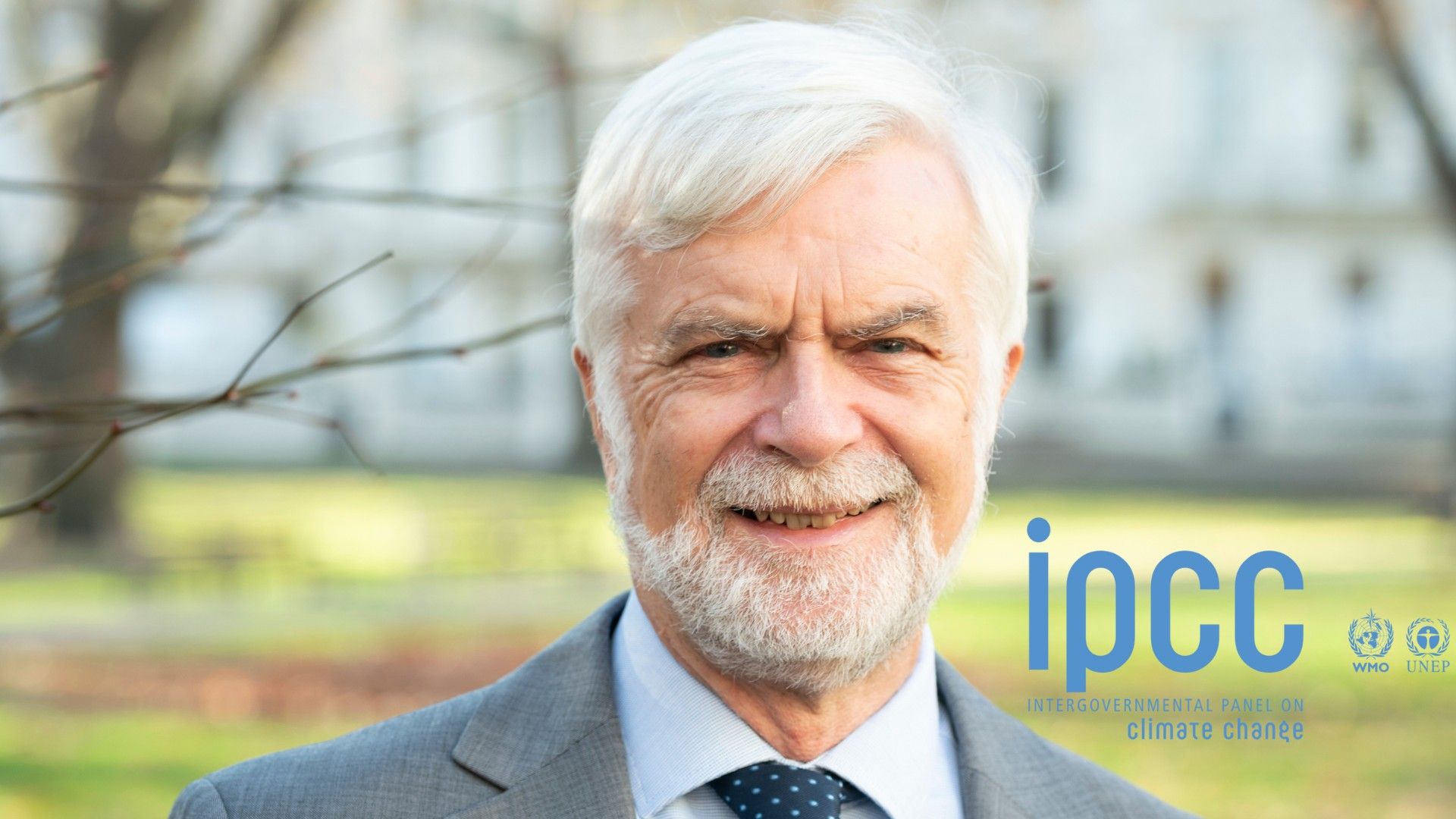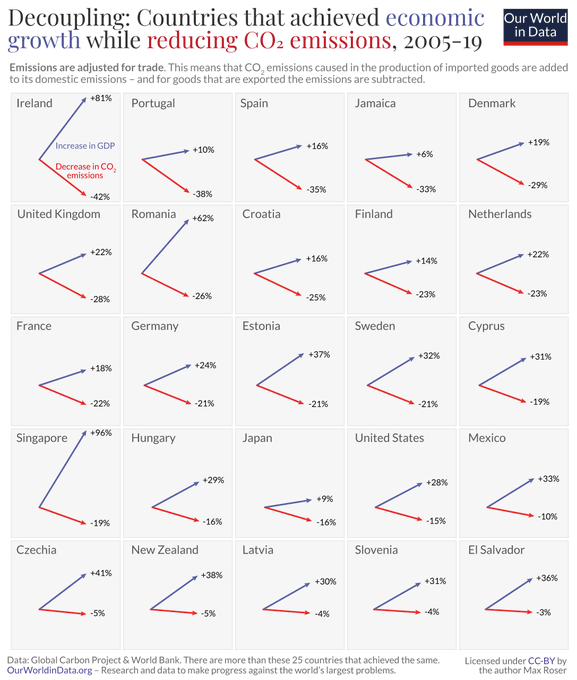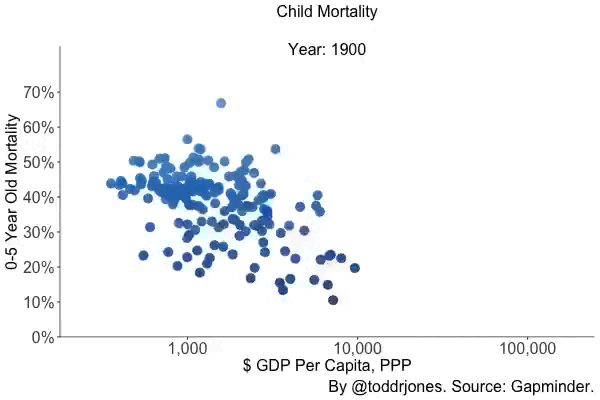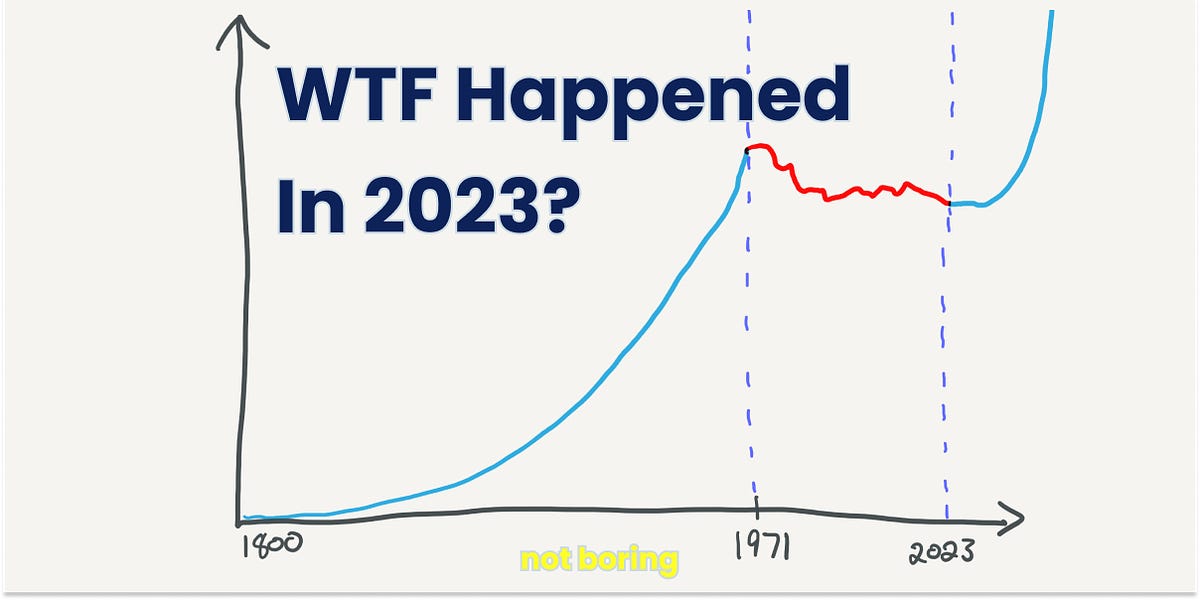
💡 Musings of The Angry Optimist: Doomsday talk and climate change
Does doomsday rhetoric about the climate work?
Share this story!
🌏 A serious problem that we will solve
The UN's climate panel, IPCC, has a new chairman. Jim Skea is a professor of sustainable energy and has been active in the IPCC since the 1990s.
After he was elected, he said the following in an interview:
"If you constantly communicate the message that we are all doomed to extinction, then that paralyzes people and prevents them from taking the necessary steps to get a grip on climate change."

Jim Skea's attitude is the one we have here at Warp News.
Climate change is a serious problem that, if we do not solve, will have very severe consequences for us. But we are confident that we will solve them, and that we have started doing so.
Progress has been too slow, and continues to be too slow, but the pace is picking up. Global climate emissions are no longer following the worst-case trajectory, climate researcher Zeke Hausfather recently showed.
We also see how a tsunami of climate solutions is on the rise.
Several countries have economic growth and reduced climate emissions (even adjusted for trade.)

In a three-part series, we showed that Sweden is getting more from less in a number of areas.
In his summer talk on Swedish radio, the investor and Northvolt co-founder, Harald Mix, said his goal is to reduce one percent of the world's climate emissions through investments and company building.
Mix seems to follow what I wrote some time ago: The larger the emissions, the greater the opportunities. He has looked at where the largest emissions are (transportation, heating, steel, cement, etc.) and starts green companies in these areas.
Of course, this doesn't mean that we can rest on our laurels. The task that lies ahead is still gigantic. We cannot say we've turned the corner yet, but what we can say is that the change has started. We are starting to see positive signs and effects.
What we have started doing is working, but we need to do much more of it.
Mathias Sundin
The Angry Optimist
💡 Tips
A better world
This is how the world has changed in the last decades. From Todd R Jones.

WTF?
Packy McCormick:
"When economic historians in 2073 look back on the past fifty years of growth and abundance, they’ll pull up a bunch of charts, and one question will jump out at them: WTF Happened In 2023?
Maybe I’m drunk on a cocktail of optimism and technological progress, but it feels like 2023 is the turning point: from Stagnation to Acceleration."
 Not Boring by Packy McCormickPacky McCormick
Not Boring by Packy McCormickPacky McCormick
Filter bubbles yes, but...
Interesting study:
- Information filter bubbles exist in social media.
- Eliminating the filter bubble does not change people's political views.
Speaking of Musk
Ester Crawford has written a long and interesting post about what it was like to work at Twitter before and after Musk.
Like seemingly everyone on this app I have plenty of opinions about Twitter > X and figure now is a good time to open up a bit about my experience at the company.
— Esther Crawford ✨ (@esthercrawford) July 26, 2023
I tweeted for years into the void for the love of it like many of you, but after selling my startup to Twitter in… pic.twitter.com/bw7CHhk0Xg
Mathias Sundin
The Angry Optimist
By becoming a premium supporter, you help in the creation and sharing of fact-based optimistic news all over the world.
